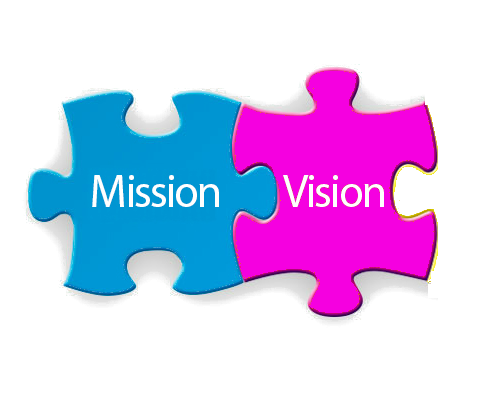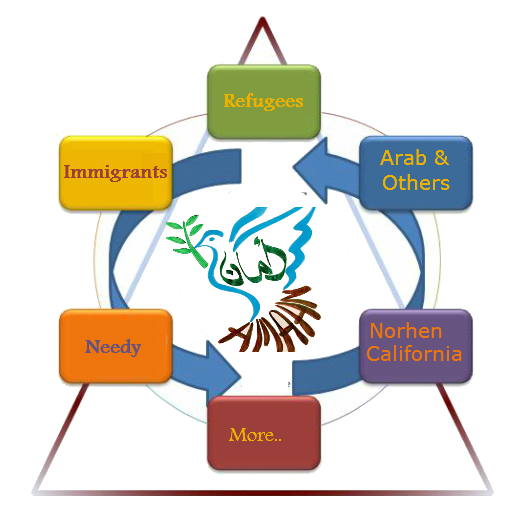 |
Who We Are
The AACC-SV has provided assistance to new Arab immigrants by providing them with referrals to available social services and legal assistance. This has been especially relevant for the large number of Iraqi refugees and immigrants arriving in California since the early 1990s and, in the last few years, for Syrian refugees and immigrants as well. Our work in the area of social service referrals, however, has been sporadic over the years and we have sought to make this effort more systematic. The AMAAN Committee of the AACC-SV (AMAAN is the Arabic word for safety and security) has its origins in the refugee crisis which overwhelmed Europe in the summer of 2015. That crisis saw a mass and unorganized migration of refugees from Southwest Asia and Sub-Saharan and North Africa to Europe culminating in the entry of a record 1.3 million asylum seekers in that year as well as the deaths of hundreds attempting to journey by sea. Among these were more than 500,000 Syrians and Iraqis fleeing civil wars in their homelands. European states granted 97 percent of Syrian asylum seekers and 86 percent of Iraqi asylum seekers protected status in 2015.
Having heard through friends and acquaintances about a new wave of Syrian and Iraqi refugees arriving in Northern California specifically, Hana Itani, an original co-founder of the AACC-SV convened a group of Arab-American community members in August 2016 to discuss ways of assisting. The group consisted of a number of professionals in the fields of refugee integration and assimilation, with others having experience in charitable organizations and/or relief activities for Syrian and Iraqi refugees in Northern California. In December 2016, the 17-member group adopted its name--AMAAN—and became an official committee of the AACC-SV. Of 17 members, 14 are women, 16 are immigrants and all are professionals in a range of fields.
Mission and Vision
After months of deliberation and reflection, the AMAAN group adopted a mission statement to guide our work and that reflects our assessment of needs and our own capacities to address those needs: “Empowering individuals and communities to heal, unite and thrive.” Likewise, our conversations and interactions produced a vision of what we want our work to produce over the long term and, after careful consideration, we adopted the following vision statement: “Support refugees and others in their transition to a stable and secure life by creating a robust and sustainable social services and referral center that leaves no one behind.” Who We Serve
The AMAAN Committee decided that reaching out to—and assisting—recently-arrived Arabic-speaking refugees would be an effective way to launch our activities. Starting in the summer of 2016, AMAAN Committee members began to build contacts and relationships with Arab refugees in Northern California through friends and acquaintances. A number of AMAAN Committee members work in refugee integration and assimilation and have had direct contacts with refugee families. Other Committee members have been individually engaged in providing refugee families in Sacramento, Oakland and Fresno with direct cash assistance through zakat committees of Islamic centers and mosques in those areas and/or providing used cars to families who are in great need transportation services. Through these contacts, we began to educate ourselves on the best ways to meet the material, social and psychological needs of newly-arrived immigrants fleeing war situations; on what types of social services are available to refugees and others; on which organizations provide such services; and where there might be gaps in services needed by Arabic-speaking refugees in particular. We considered these service gaps to be unique opportunities for AMAAN to have a substantive impact.
Developing AMAAN Services
However, given the geographic distribution of the bulk of Arabic-speaking refugees (Sacramento mainly with smaller concentrations in the Turlock, Modesto, Fresno and Oakland) versus that of AMAAN Committee volunteers (the South Bay Area mainly), providing one-to-one language services is difficult. To overcome limitations imposed by geographic distances, AMAAN has designed an innovative conversational English-language program to be conducted using Skype, an internet-based communications application, that allows teachers and learners to converse and see each other from their respective homes, eliminating the time and resource costs of transportation. To this end, AMAAN has already organized two workshops with experienced volunteers to orient and train some 20 additional volunteers who have come forward after hearing about our plans. Starting with 11 refugee families in Oakland and pending a few legal requirements, AMMAN will soon launch its Learning English Conversation Program (LECP)—its first specialized service for Arabic-speaking refugees and others.
In addition, AMAAN is planning to introduce the following services in the short- to intermediate terms:
Phone: 408.214.3073 E-Mail: info@amaansv.org Facebook Page: facebook.com/aaccamaan Twitter: @AmaanAacc
If you are unable to volunteer your time and talents, you can help by donating to the AMAAN Committee of the AACC-SV. Your tax-deductible contributions will help us in numerous ways to address the needs of refugees in Northern and Central California. Contributions in any amount are greatly appreciated. Contributions by check should indicate “AACC-SV/AMAAN” on the face of the check. Checks can be mailed to: AACC-SV/AMAAN 3968 Twilight Drive Houge Park (Building 2) San Jose, CA 95124 (AACC-SV-AMAAN is a non-profit, 501 (c) (3) humanitarian organization. For federal income taxation purposes, our tax identification number is 82-1092035. Donors may deduct contributions as provided in Internal Revenue Code 170 (c) (3).)
We look forward to working with you as volunteers in our initiative and in receiving your generous contributions to support our work. **Ramadan Potluck Iftar** Dear Community Members, |
 The Arab American Cultural Center of Silicon Valley (AACC-SV) was founded in 1989 by a group of mainly immigrant Arabs from a number of different countries with the aim of fostering the social, cultural and civic engagement of Arab-Americans in the San Jose area. The founders were keen to create a community organization that could represent and serve as a civic voice for Arab-Americans and be a vehicle for the preservation and promotion of Arab culture (including music, poetry and dance) and the Arabic language. The Center became a non-profit organization in 1996 under the umbrella of the Arab American Congress and, since June 2004, has been an independent 501 (c) (3) non-profit organization.
The Arab American Cultural Center of Silicon Valley (AACC-SV) was founded in 1989 by a group of mainly immigrant Arabs from a number of different countries with the aim of fostering the social, cultural and civic engagement of Arab-Americans in the San Jose area. The founders were keen to create a community organization that could represent and serve as a civic voice for Arab-Americans and be a vehicle for the preservation and promotion of Arab culture (including music, poetry and dance) and the Arabic language. The Center became a non-profit organization in 1996 under the umbrella of the Arab American Congress and, since June 2004, has been an independent 501 (c) (3) non-profit organization. The AMAAN Committee seeks to provide compassionate assistance to the latest wave of Arabic-speaking refugees, people who have fled unprecedented civil strife, destruction and human suffering in Iraq, Syria and elsewhere. Our aim is to provide relief and support to those in Northern California who may be in need of assistance. In doing so, we rely primarily on the Arab-American community and our cultural norms that emphasize generosity, compassion and solidarity.
The AMAAN Committee seeks to provide compassionate assistance to the latest wave of Arabic-speaking refugees, people who have fled unprecedented civil strife, destruction and human suffering in Iraq, Syria and elsewhere. Our aim is to provide relief and support to those in Northern California who may be in need of assistance. In doing so, we rely primarily on the Arab-American community and our cultural norms that emphasize generosity, compassion and solidarity.  Of the estimated 22,600 Syrian and Iraqi refugees arriving in the U.S. in 2015-2016, about 5,000 were settled in California. Of these, more than 55 percent settled in San Diego County; about 17 percent (about 875 persons) settled in Northern California; and another 4.6 percent (about 231 persons) settling in the Central Valley towns of Turlock and Modesto. Data indicates that relatively small numbers of Syrian and Iraqi refugees have settled in the San Francisco Bay Area (mainly in Oakland and Santa Clara County) due to the very high cost of living and their meager means. Thus, there are an estimated 1,500-1,750 new Syrian and Iraqi refugees in Northern California and the Central Valley as of 2016. More have arrived in recent months and hundreds arrived in these regions prior to 2015.
Of the estimated 22,600 Syrian and Iraqi refugees arriving in the U.S. in 2015-2016, about 5,000 were settled in California. Of these, more than 55 percent settled in San Diego County; about 17 percent (about 875 persons) settled in Northern California; and another 4.6 percent (about 231 persons) settling in the Central Valley towns of Turlock and Modesto. Data indicates that relatively small numbers of Syrian and Iraqi refugees have settled in the San Francisco Bay Area (mainly in Oakland and Santa Clara County) due to the very high cost of living and their meager means. Thus, there are an estimated 1,500-1,750 new Syrian and Iraqi refugees in Northern California and the Central Valley as of 2016. More have arrived in recent months and hundreds arrived in these regions prior to 2015.  Based on initial contacts and experiences with refugee assistance, and given our capacities at present, the AMAAN Committee concluded that the most important service we could provide in the short-term is English-language conversational skills training. Based on our assessment, this would have the greatest impact on assisting new Arabic-speaking arrivals and serve as a bridge and compliment to language services offered by schools and other social service providers. Furthermore, AMAAN is uniquely qualified to provide such a service.
Based on initial contacts and experiences with refugee assistance, and given our capacities at present, the AMAAN Committee concluded that the most important service we could provide in the short-term is English-language conversational skills training. Based on our assessment, this would have the greatest impact on assisting new Arabic-speaking arrivals and serve as a bridge and compliment to language services offered by schools and other social service providers. Furthermore, AMAAN is uniquely qualified to provide such a service. We invite and encourage community participation in AMAAN activities and goals. We welcome those who have expertise or an interest in any of the above-mentioned planned activities to volunteer by contacting us at the following coordinates:
We invite and encourage community participation in AMAAN activities and goals. We welcome those who have expertise or an interest in any of the above-mentioned planned activities to volunteer by contacting us at the following coordinates: